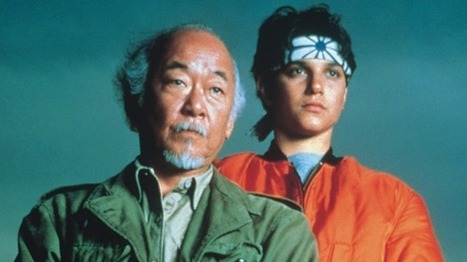 Your new post is loading...
 Your new post is loading...
In the ideal meeting, all attendees participate, contributing diverse points of view and thinking together to reach new insights. But few meetings live up to this ideal, in large part because not everyone is able to effectively contribute. We recently asked employees at a large global bank a question: “When you have a contribution to make in a meeting, how often are you able to do so?” Only 35% said they felt able to make a contribution all the time. There are three segments of the workforce who are routinely overlooked: introverts, remote workers, and women. As a leader, chances are you’re not actively silencing these voices — it’s more likely that hidden biases at play. Let’s look at these biases and what you can do to mitigate their influence. Segment 1: The quiet ones The unconscious bias: Smart people think on their feet. What happens: A program manager calls a meeting to think through a resourcing issue. She summarizes the situation, shares results of a recent staffing analysis, and then tees up the discussion. This works great for extroverted thinkers (those that talk to think). But from the get-go, the introverted thinkers (those who think to talk) are at a disadvantage....
Via The Learning Factor
Research shows that in leaderless groups, leaders emerge by quickly synchronizing their brain waves with followers through high quality conversations. Simply put, synchrony is a neural process where the frequency and scale of brain waves of people become in sync. Verbal communication plays a large role in synchronization, especially between leaders and followers. Synchrony between leaders and followers leads to mutual understanding, cooperation, coordinated execution of tasks, and collective creativity. On the surface, brain synchrony seems easy to understand. It simply implies that people are literally on the same wavelength. Yet, at a deeper level, interpersonal synchrony involves much more. Dr. Daniel Siegel explains that “presence”, “wholeness”, and “resonance” are at the core of the ability to develop synchrony. Recent advances in brain science can help leaders learn to synchronize with followers on these deeper levels:
Via The Learning Factor
When we think of great leaders, certain characteristics come to mind: They have confidence in their abilities and conviction in their beliefs. They “trust their gut,” “stay the course,” and “prove others wrong.” They aren’t “pushovers,” and they certainly don’t “flip-flop.” But this archetype is terribly outdated. Having spent three years studying many of the world’s most successful leaders for my new book, Persuadable, I’ve learned one surprising thing they have in common: a willingness to be persuaded. Alan Mulally, the vaunted CEO who saved Ford Motor Company, is, for example, exceptionally skeptical of his own opinions. Ray Dalio, one of the world’s most successful hedge fund managers, insists that his team ruthlessly second-guess his thinking. Christine Lagarde, managing director of the IMF, seeks out information that might disprove her beliefs about the world and herself. In our increasingly complex world, these leaders have realized that the ability to consider emerging evidence and change their minds accordingly provides extraordinary advantages.
Via The Learning Factor
When discussing business leadership, the distinction between good management and good leadership is often made. Managers are thought to be the budgeters, the organizers, the controllers — the ants, as one observer puts it — while leaders are the charismatic, big-picture visionaries, the ones who change the whole ant farm. But such a construction, those interviewed for this article agree, erroneously leads to a bimodal way of looking at something that should really be evaluated on two separate scales. "Everybody has got a little bit of each in them," says John Kotter, who admits he is sometimes guilty of using the dichotomy in an effort at simplification. "It's much better to think in terms of measuring people on a zero-to-ten scale for each quality."
Via The Learning Factor
A retired Scottish footballer and a Silicon Valley venture capitalist don’t seem like the likeliest of friends and collaborators. But Alex Ferguson, the long-time manager of the ultra-successful Manchester United team, and Michael Moritz, the chairman of Sequoia Capital, have more in common than you might suspect. Ferguson, whose team won 38 trophies in the 27 years he coached, and Moritz, an early investor in Google, Yahoo, and Airbnb, have both thought long and hard about the art of management. Together they’ve written a book on the art of management — Leading: Learning from Life and My Years at Manchester United — that distills the lessons in leadership Ferguson learned while heading the world’s most successful sports franchise. Becoming a star on the football pitch (as Europeans call a soccer field) and in business requires “practice, practice, and practice,” and the successful manager must always be prepared to “retune things,” Ferguson told a group of Stanford Graduate School of Business students.
Via The Learning Factor
Leadership is a constant fight for what you stand for and what you seek to achieve for the betterment of yourself and the healthier whole. Do you have the self-trust to endure the journey? The belief in yourself not to be derailed by others who may doubt your intentions? The preparedness to stay the course or course-correct – and not lose faith, focus, and hope along the way? Leadership is about putting yourself to the test; knowing how much you can stretch your thinking and that of your colleagues, challenging your core beliefs during times of uncertainty, and staying true to yourself when the pressure seems insurmountable. As a leader, it’s about having the wisdom to know what your experiences have taught you.
Via The Learning Factor
Although a lot of people are reminded to be thankful on Thanksgiving, gratitude shouldn't be reserved for special occasions. Showing just a little appreciation for what you have could greatly improve your life year-round. Here are nine powerful ways gratitude can change your life:
Via The Learning Factor
After writing my last column, an overview of the very disheartening book called Leadership BS, I practically had to wipe my tears off of my keyboard. The book’s author, Jeffrey Pfeffer, presents research to demonstrate that the business environment encourages aberrant leadership behaviors — selfishness, immodesty, lying, and so on — in spite of their negative impact. And, during my interview with Pfeffer, he squelched my dream of a conscious capitalist utopia when he stated his belief that companies routinely named the best places to work because of their open, honest, and transparent environments will continue to be the exception rather than the rule. “Leaders will trade off money and performance for ego, power, and control” time and time again, he told me. But now that I’ve had some time to get over the shock of having my hopes dashed so summarily, my tears have dried. And, upon reflection, I have to respectfully disagree. In the fight for talent, the current dismal state of employee engagement is no longer tenable. Furthermore, there are too many “best of” exemplars of companies that are doing things right and turning a profit at the same time for firms and leaders to rationalize their bad behavior as “just business.” I believe we can, want, and must to do better.
Via The Learning Factor
|
You don't have to be in managerial role to be a leader. Follow these tips to inspire your colleagues and reap the benefits of a happier workplace.
Via The Learning Factor
As a leader, communicating can sometimes feel like Groundhog Day. No matter how hard you try to get your message across, it is all too easy to find the next day that you face the same blank stares, predictable objections, and questions that indicate that you failed to make it stick — that people just aren’t getting it. One reason leaders find themselves in this cycle is that their approach to communication is based on an outdated mental model. It’s a model best described as a “post office.” They view themselves as the sender of a message and others as the receivers. If problems arise, leaders look for disruption somewhere along the route. The post office model focuses most leaders’ attention on the sending process, rather than the give-and-take of effective conversations. Even if they invite people to ask questions and truly value their buy-in, these leaders are still preoccupied with their message. This leaves them ignorant about the larger context and reality on the ground, including emerging issues and game-changing opportunities. In the extreme, thinking in terms of the post office model causes leaders to make decisions in isolation or miss the early warning signs of dysfunctional momentum.
Via The Learning Factor
In the age of social media, role models are the new royalty. Whether it's labels such as #fitspiration, #bodyspiration or - the hashtag I most frequently see on my newsfeed - #careerspiration, it seems like everyone is looking for someone to look up to. With power, though, comes great responsibility. As a CEO in a high-profile publishing role, I am in the lucky position to frequently meet people who say my work, books or conference addresses have inspired, motivated and guided them. I love hearing this, but it always leaves me with a slight sense of 'imposter syndrome'. Because, lets face it, I'm only human, and no single person has all the answers. What if I lead someone down the wrong path, and offer advice that doesn't serve them?
Via The Learning Factor
Are you a successful leader? This is a difficult question to answer: No matter how good you think you are, the only evidence of leadership is whether people follow you. Self-serving bias distorts your perception of your own successes and failures. Even if you’re incredibly self-aware, you may have trouble with an objective assessment because your direct reports may only appear to be following — they don’t get an option to be physically present — and not every company conducts rigorous engagement surveys or 360-degree reviews. So how can you gain a reasonably accurate understanding of your success as a leader? Try integrating three distinctive views.
Via The Learning Factor
Lagging performance is among the most glaring indications something is awry in an organization. Then there are the quieter, less splashy but still foreboding signals: a culture of distrust, the uncomfortable undiscussables, staff disengagement, disorganization — all of which indicate a disconnect that could cost a business tremendously if not addressed. When confronted with a problem, or better yet, before it becomes a problem, leadership consultants Bob Anderson and Bill Adams recommend organizational leaders first turn inward to drive lasting change.
Via The Learning Factor
A recent study concluded that gender inequality is costing the global economy $12 trillion annually, with North America accounting for 25 percent of that total followed by China’s 20-plus percent. If diversity and gender equality have so much potential for improving business, why don’t we see more of it faster? What will be necessary to make it happen? There are several kinds of responses to this question. The first is the “do it yourself” response, characterized by Sheryl Sandberg’s now-famous argument in her book, Lean In. Among other things, she challenges women to change their behaviors, to bolster their self-confidence and ambition, and become better job and wage negotiators while choosing a partner who can help share the load of a career.
Via The Learning Factor
Walking the tightrope of a global economy is a difficult yet increasingly essential feat businesses must perform to thrive. Those that only cater to one audience have a greater chance of falling behind their competitors and losing market share. Implementing sound leadership development is an important strategy to help businesses crack into diverse and emerging markets. Having leaders who understand how a diverse workforce fosters a larger consumer base might seem like common sense, but company executives often overlook the connections between diversity and leadership development, and the business suffers because of it.
Via The Learning Factor
|



 Your new post is loading...
Your new post is loading...




































Three groups that are often overlooked
Run Meetings That Are Fair to Introverts, Women, and Remote Workers